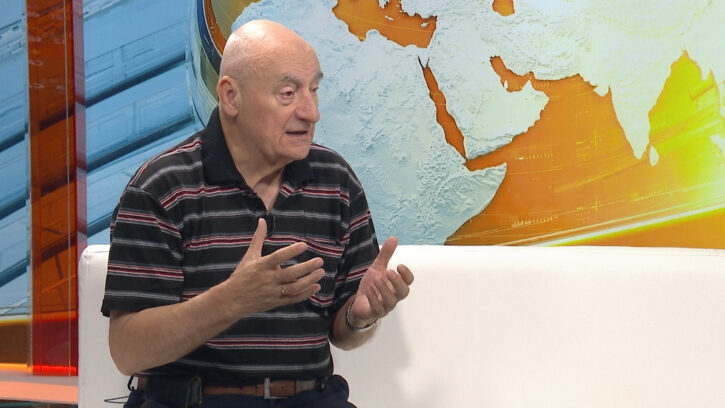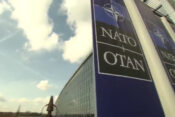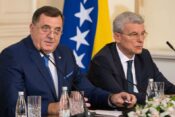
Although Bosnia’s political leaders have still not clarified whether an agreement they signed two days ago implied Bosnia is moving toward joining NATO or not, analyst Djuro Kozar told N1 on Wednesday he understood that the country will continue working on securing membership, but the process will be slower.
The agreement according to which Bosnia’s new government is to be formed within 30 days, signed by the leaders of the three strongest right-wing parties which won the October election, confirms Bosnia’s “commitment for advancing the relationship with NATO without predicting future decisions in relation to membership of Bosnia and Herzegovina.”
Bosnian Serb representatives vehemently oppose Bosnia joining the alliance, but Bosniak representatives keep pushing for it.
After the Agreement was signed, Bosnian Serb leader Milorad Dodik reassured that it does not imply Bosnia will become a NATO member, calling it “unacceptable.”
But Bosniak leader Bakir Izetbegovic said that the agreement means Bosnia’s NATO integration process will continue, only slower.
Kozar agreed.
“It will be somewhat slower, and the final decision on entering will be made by the people in both entities, probably through a referendum,” he predicted.
According to a 2009 decision, Bosnia should send NATO its Annual National Programme (ANP), which is necessary for the activation of the country’s Membership Action Plan – the next step toward membership.
Bosnian Serb representatives have, however, been putting off sending the Programme to the alliance.
Kozar explained that “the ANP does not just cover the military, but the total political and economic situation in the country – the legislature, human rights etc.”
He said that he expects Bosnia will send a reduced ANP to the alliance, which will only cover defence and security issues.
But Bosnia remains on a steady path toward NATO membership, he argued.
“It is not going backwards, but it will slow down because in Republika Srpska (the Serb-dominated part of the country) they still keep mentioning their Resolution on Military Neutrality, although that is only for their internal use. That Resolution does not bind the Federation (the other semi-autonomous part of the country) nor other state bodies,” he said.
The analyst said he believes that citizens of Republika Srpska are simply opposed to joining NATO because they are not informed sufficiently of what benefits membership would bring with it but are always reminded of the past – the bombing of the RS and Serbia.
“We always keep going back to the past, we need to turn toward the future, where everyone will have it better. Where there will be less unemployment, more jobs, and where Bosnia will export more. The path toward NATO is a way to overcome some internal issues,” he said, arguing that NATO is not only a military organisation, but also a political one.
“NATO works toward having peace and stability in its member country. Generally, the NATO umbrella secures some kind of security and big corporations take into account whether a country is a NATO member or not,” he said.






